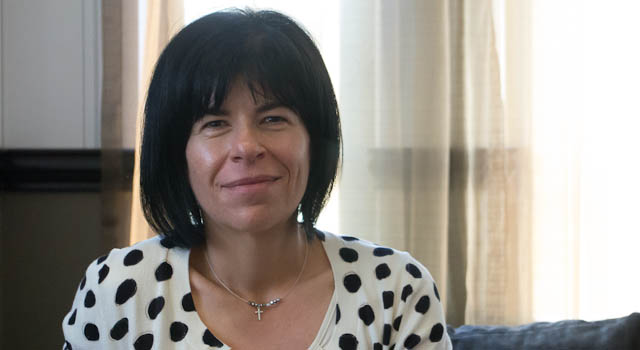
Revenues from Internet access and the wider entertainment and media sector in South Africa will reach R176bn by 2019, from R112,7bn in 2014, according to a new report by PwC. That’s a growth of 56% over the five-year forecast period.
PwC’s “Entertainment and media outlook: 2015-2019”, published on Thursday, predicts that the sector will grow at a compound annual growth rate (CAGR) of 9,4% over the period, far exceeding GDP growth and outstripping global growth in the sector of a forecast 5,1% CAGR.
The bulk of the growth in South Africa will come from Internet access spending, PwC says.
The company says it has included Internet access spend in its latest report because of how it is driving growth in consumer spending on entertainment and media products and affecting how consumers interact with these services.
The consumer Internet access market will rise rapidly from R32,5bn in 2014 to R76,2bn in 2019, far ahead of any other consumer spend category, making it the largest contributor to South Africa’s total entertainment and media revenues.
Digital media will drive the biggest changes and enjoy the most growth in the coming five years, although spending on traditional media — including television and print — will also rise, albeit at a much slower pace.
Digital’s total share is now around 33% of the total market, according to PwC. It expects this to reach 49,6% by 2019.
“By as early as 2020, digital revenue could exceed traditional revenues,” says PwC Southern Africa senior manager for entertainment and media Elenor Jensen. “Remember it was only 16% in 2010. This shows the transformative effects of the Internet in South Africa.”
But it’s Internet access that will drive most revenue growth in the coming five years. And here, it’s mobile rather than fixed lines that will drive adoption, according to PwC.
The company expects a 10,8% CAGR from fixed lines and a 19,6% CAGR from mobile over the next five years. Smartphone connections in South Africa will more than double from 22m to 52m in the next five years. There’ll also be strong growth in tablets, from 2,6m to 5,6m by 2019.
“When we compare the average cost of a mobile broadband subscription, it’s much cheaper and more flexible that a fixed broadband subscription. We don’t see this gap narrowing much by 2019,” says Jensen.
“The introduction of cheap and affordable devices will really drive people to mobile,” she says.
“The idea that every person in South Africa will have access to the Internet through a relatively affordable connection, through a device they carry with them 24×7, is such a transformative idea for the media and entertainment industry.”
This will drive a surge in mobile advertising over the forecast period.
Although television and print advertising will still account for 51% of the total advertising market in 2019 (from 52% in 2014), Internet ad spend will grow at a 21,7% CAGR through to 2019, expanding from 5% of the market to 11%.
Globally, Internet advertising is expected to exceed TV advertising by 2019, although this will not happen in South Africa in the same time period.
“TV has a few well entrenched benefits over other advertising formats — cheap, deep penetration and big value in pairing your brand to quality content,” says Jensen.
However, growth in Internet advertising will far outstrip other formats. Already, South Africa is the fourth fastest growing paid search advertising market in the world. Throughout the forecast period, search-based spending will be around 40% of Internet ad spend.
Desktop display ad revenue was R590m in South Africa in 2014, making up about 30% of the market. By 2019, however, it will make up only a fifth of the market, despite enjoying continued growth throughout the forecast period.
Mobile ad spend will far outstrip spending on traditional, desktop-centric display ads. Mobile advertising will gain 12% of the Internet advertising market in the next five years and will surpass display advertising by 2016 to become the second largest segment after search advertising.
Videogames, along with business-to-business and filmed entertainment, will also enjoy strong growth over the forecast period, PwC says.
“But it is the Internet itself that is acting as a driver of revenues in videogames and film, creating new revenue streams by making over-the-top/streaming or social/casual gaming viable to more consumers and thereby cancelling out declines in physical sales,” says PwC Southern Africa entertainment and media leader Vicki Myburgh.
Interestingly, revenues from casual gaming (on smartphones and tablets, for example) will exceed traditional gaming (on PCs and consoles) by 2019.
A further thriving source of revenue over the coming years will be live events. Revenue from live music is expected to grow at a CAGR of 7,9% over the next five years, reaching R1,5bn in 2019, up from R1bn in 2014.
South African cinema advertising revenue is rising at a CAGR of 6,7% and should be worth R884m in 2019.
The music market was worth R2bn in 2014, compared to R2,1bn in 2013. Annual revenue is forecast to grow marginally by a CAGR of 1,3% of the next five years to remain relatively flat at R2,1bn in 2019. However, digital music sales will exceed physical format revenues by 2019. — © 2015 NewsCentral Media
- Subscribe to TechCentral’s free daily newsletter

